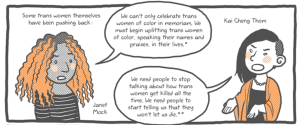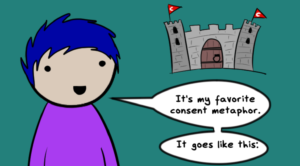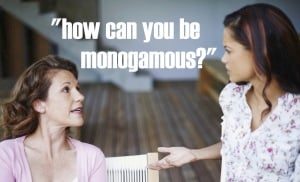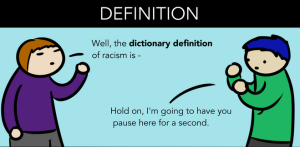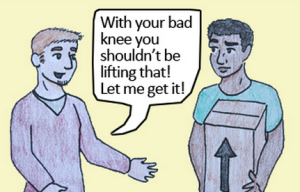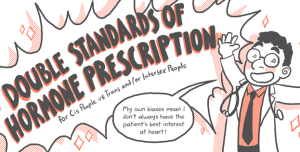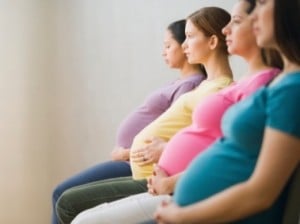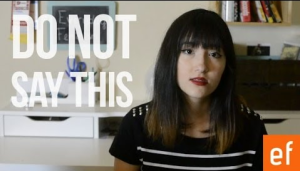
Source: Stace A Base Cakes
When I was ten, my mom organized a surprise party for my dad’s 40th birthday.
Lots of unexpected friends and faraway family arrived for the occasion, which was complete with “Over the Hill” gag gifts and my dad almost peeing his pants, he was so shocked.
Several years later, I had begun to realize that this particular day has marked the most defined shift in how I perceive my father.
Sure, for most of my life, he has had salt-and-pepper hair and some back problems, but seeing him on that day as he announced his journey into old age and inevitable frailty changed something for me.
He thought he was “old,” all of these other people were agreeing with him, and I believed them.
But aside from all of the merriment and joking that took place on that day, something deeper was also at play that allowed for everyone to see making fun of all of the stereotypes of older age as being necessary and, perhaps, the only way to “deal with” getting older.
So, which social and cultural condition makes this type of thinking possible? Well, not to put too fine a point on it: ageism.
What Is Ageism and Why Should I Care?
Ageism is an invisible, but potent type of discrimination that favors one age group over another, usually youth over older adults.
Becca Levy, a professor of Epidemiology and Psychology, attributes the salience of ageism to three connected elements, which we will look at here.
1. Prejudicial attitudes toward older people, old age, and the aging process
Recently, I had the opportunity and great honor of corresponding with Janice Wilberg, Community Planner and Independent Consultant, on the subject. It so happens that Jan has recently written on the topic of ageism, and it was enlightening to read about her experiences.
As a woman who deals with hearing complications, a disability stereotypically associated with growing older, Jan experiences an added layer of age-related discrimination.
Especially frustrating, in Jan’s words, is when “every mix-up and mistake is seen by others and usually by oneself as a sign of terrible things to come. Lose your keys? Time to find assisted living. But sometimes, losing your keys is about losing your keys and not about losing your mind.”
And when, over time, we are culturally conditioned to believe that aging can only be negative, by the time we reach middle age, we are ill-prepared to fight against the stereotypes surrounding aging.
2. Discriminatory practices against older people
We can probably all recall having witnessed someone receiving differential treatment because of their age.
It does occur in favor of older age compared to youth, but most of the time, this discrimination is against someone who is older.
One of the most prominent contexts in which this bias occurs is in the sphere of health care.
Many older adults are not adequately screened for certain diseases or cancers because illness is seen as inherent to the aging process. Preventative care and rehabilitative services are also seen as less important to those progressing in age.
Because ageism is not explicitly addressed in curricula for most medical students, the default will always be to value a younger person because they are seen as having more to give to society.
Sadly, by the time that many of these individuals who are affected by later stage illnesses receive the care that they need, it is too late to effectively cure it and management becomes the only option.
3. Institutional practices and policies that perpetuate stereotypes about older people
The acceptance of self-stereotypes is evidenced by the huge niche that make-up and beauty product companies have found by way of convincing women that they need to buy over-the-counter anti-aging and wrinkle creams.
In what other context would it be seen as acceptable to imply that unless a woman is actively and intentionally attempting to hide parts of herself, she is not as valuable? Or, further, that she must be “abnormal” for not wanting what the “ideal woman” strives to be?
The way in which this message is so relentlessly conveyed is through our constant coupling of “young” with positive and “old” with negative, which is embedded in our cultural value system.
In one of the most widely accepted and acknowledged developmental theories, Erik Erikson outlines psychosocial stages of life based on categories of age, referred to as crises.
The last possible stage of Erikson’s lifespan theory – age 65 and beyond – is deemed as entailing the crisis of “integrity vs. despair,” implying that by the time you reach the last chapter of your life, you will struggle with reconciling how to avoid the latter in celebration of the former.
The other implicit message is that if you don’t buy into our capitalistic society’s notions of what makes you the ideal person, then you will fall into the latter category.
When we read and view these tacit messages throughout our lifetime, they can easily become ingrained into the lens through which we view older individuals.
What Can We Do to Fight Ageism?
Similar to any other –ism with which we raise an issue, the more we talk about ageism and its effects on people of all ages, the better prepared we will be to make change in our society and to mitigate it when we encounter it ourselves.
It is a feminist issue that, at some point, we will all encounter personally (if we are so lucky).
When we can free ourselves from fearing the changes that getting older brings and focus on our contributions in the moment, no matter how small they seem, every year of our life and wrinkle on our faces will remind us of all of our good fortune.
Jan has recalled mornings when she looks back“at all the bright afternoons looking up at the sun on the front porch of a lake cabin, and I think, ‘Hey, it was a beautiful day. Here’s the result of many beautiful days right here on your face, lady.’”
After speaking with Jan and thinking about what she had to say about her experience, I realized that self-love is really at the root of any aging issue.
Through connection with others and learning to look more deeply at our self-defined expressions of beauty instead of sociallydefined projections, it becomes easier to appreciate the changes in ourselves and to value it for all of its intrinsic splendor.
What a treasure to live, to age, and to grow.
[do_widget id=”text-101″]
Want to discuss this further? Visit our online forum and start a post!
Lauren Rosenthal is a Contributing Writer for Everyday Feminism. She is a Gemini with aspirations of helping people (and herself) move toward authenticity. She enjoys reading and spending time with people and cats. Lauren’s main interests of activism are awareness surrounding sexual and gender diversity, women and body issues, and ageism as an invisible but pervasive form of oppression. Aimless musings and other thoughts of hers can be read on her personal blog, and she loves e-conversing with anyone interested in the history of feminism and what it means for women of all ages today. Read her articles here.
Search our 3000+ articles!
Read our articles about:
Our online racial justice training
Used by hundreds of universities, non-profits, and businesses.
Click to learn more






